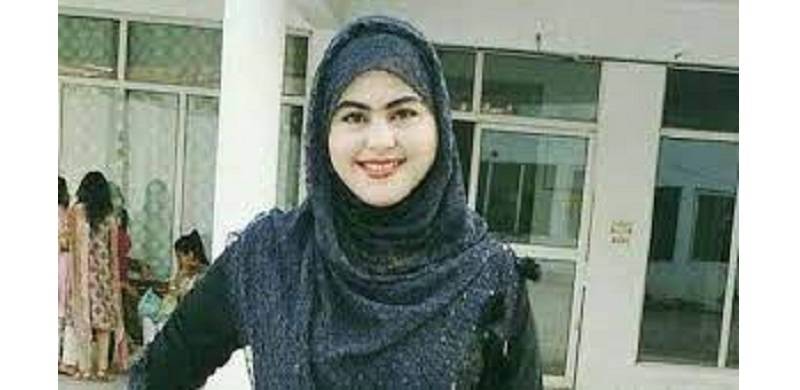
The killer of medical student Asma Rani was pardoned by the victim’s parents under pressure from the Tableeghi Jamaat, it has emerged.
After the parents accepted a jirga decision, local journalists confirmed to Friday Times that Asma’s family was not only pressurised by the influential family of the convict, they were emotionally blackmailed by a prominent Tableeghi Jamaat member as well. It has been further learnt that members of different political parties were involved in coercing the family as well.
Civil society members and human rights defenders have protested against the jirga verdict and the ensuing pardon of the murderer of Asma Rani, who was shot dead in Kohat three years ago after turning down the accused’s marriage proposal. Activists say that the ruling will pile on the miseries for women in the country and reiterate that it will especially encourage further honour killings.
The Lakki Marwat jirga, and local lawyers, disagree with verdict pardoning the murderer. They have further announced that the jirga will challenge the ruling in the high court.
But legal experts say the biggest question mark remains over whether the accused will be freed from prison under the agreed settlement, or if he will be legally bound to fulfil the conviction.
Imaan Mazari a lawyer and activist told Naya Daur Media that if any section other than Section 302 of the Pakistan Penal Code (PPC) was added then the accused could remain in prison. If not, the offence is compoundable and the killer will be freed.
“If Section 311 of the PPC, or some other non-compoundable offence, was also inserted in the FIR [First Information Report], then he may not be freed,” she said.
Imaan added that such rulings are seen in cases involving children who are murdered while working as domestic help. She maintained that those from impoverished, and often even well-off, backgrounds cannot cope with the financial, and other, pressures of pursuing a legal battle.
“There are often threats and intimidation directed at families. Pardoning is often seen in cases pertaining to gender-based violence. We have observed the involvement of ‘jirgas’ and ‘ulema’ to ‘resolve’ the case and seek settlements between the parties,” Imaan reiterated.
She added that Pakistan’s law, in practice, fails to take into consideration the massive power imbalances that routinely result in such pardons.
Former Supreme Court Bar Association President Kamran Murtaza told Naya Daur media that under the law if both parties reached a settlement, and the killer had been pardoned, then he would be freed.
“This is legal and permitted. The PPC is compoundable and the murderer will get relief under the law,” he said.
When asked if pardoning of a murderer will aggravate the violence in the future the advocate maintained that the law allows it. “Both the constitution and sharia rules permit the pardoning of murders.”
After the parents accepted a jirga decision, local journalists confirmed to Friday Times that Asma’s family was not only pressurised by the influential family of the convict, they were emotionally blackmailed by a prominent Tableeghi Jamaat member as well. It has been further learnt that members of different political parties were involved in coercing the family as well.
Civil society members and human rights defenders have protested against the jirga verdict and the ensuing pardon of the murderer of Asma Rani, who was shot dead in Kohat three years ago after turning down the accused’s marriage proposal. Activists say that the ruling will pile on the miseries for women in the country and reiterate that it will especially encourage further honour killings.
The Lakki Marwat jirga, and local lawyers, disagree with verdict pardoning the murderer. They have further announced that the jirga will challenge the ruling in the high court.
But legal experts say the biggest question mark remains over whether the accused will be freed from prison under the agreed settlement, or if he will be legally bound to fulfil the conviction.
Imaan Mazari a lawyer and activist told Naya Daur Media that if any section other than Section 302 of the Pakistan Penal Code (PPC) was added then the accused could remain in prison. If not, the offence is compoundable and the killer will be freed.
“If Section 311 of the PPC, or some other non-compoundable offence, was also inserted in the FIR [First Information Report], then he may not be freed,” she said.
Imaan added that such rulings are seen in cases involving children who are murdered while working as domestic help. She maintained that those from impoverished, and often even well-off, backgrounds cannot cope with the financial, and other, pressures of pursuing a legal battle.
“There are often threats and intimidation directed at families. Pardoning is often seen in cases pertaining to gender-based violence. We have observed the involvement of ‘jirgas’ and ‘ulema’ to ‘resolve’ the case and seek settlements between the parties,” Imaan reiterated.
She added that Pakistan’s law, in practice, fails to take into consideration the massive power imbalances that routinely result in such pardons.
Former Supreme Court Bar Association President Kamran Murtaza told Naya Daur media that under the law if both parties reached a settlement, and the killer had been pardoned, then he would be freed.
“This is legal and permitted. The PPC is compoundable and the murderer will get relief under the law,” he said.
When asked if pardoning of a murderer will aggravate the violence in the future the advocate maintained that the law allows it. “Both the constitution and sharia rules permit the pardoning of murders.”

